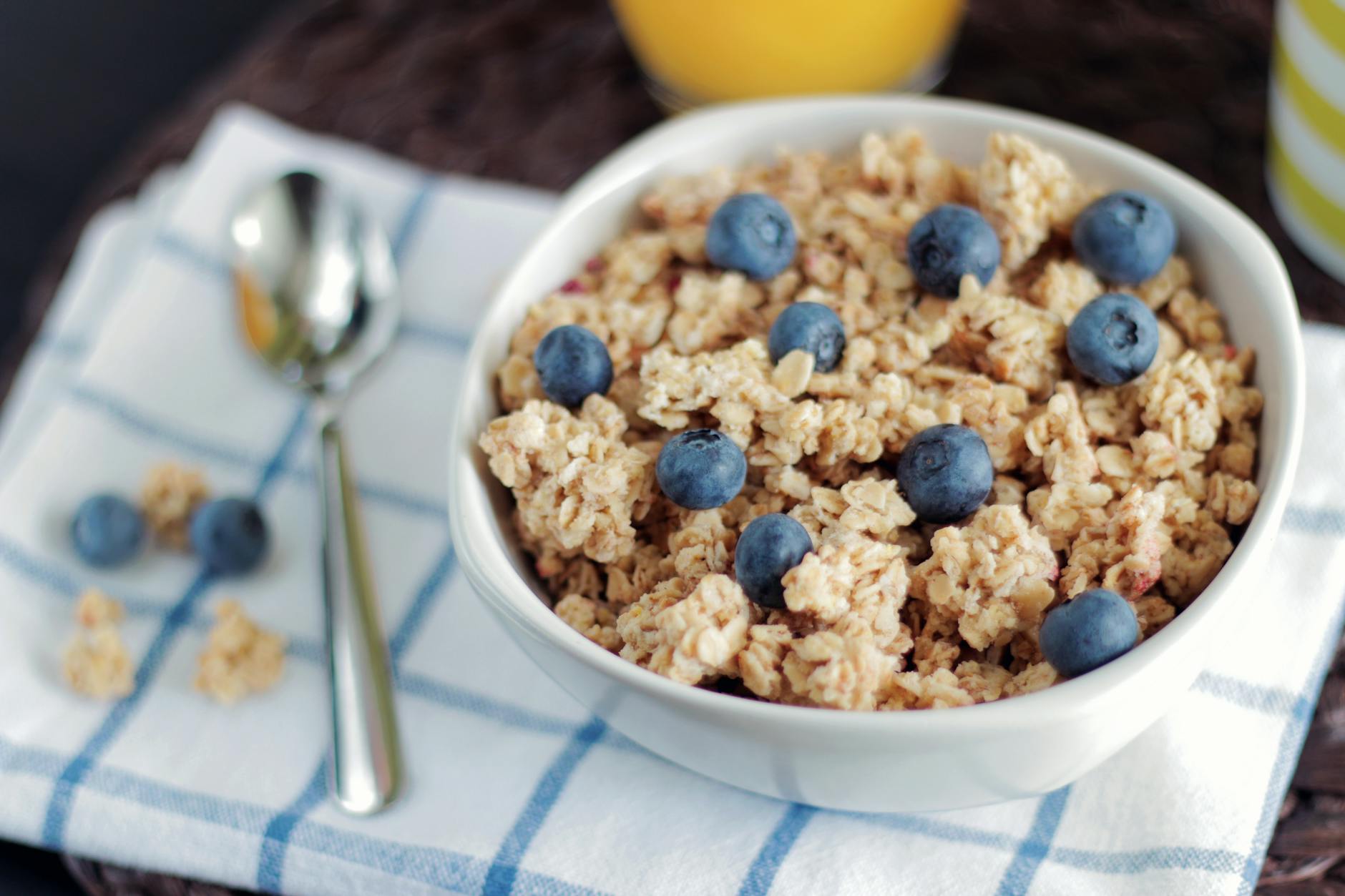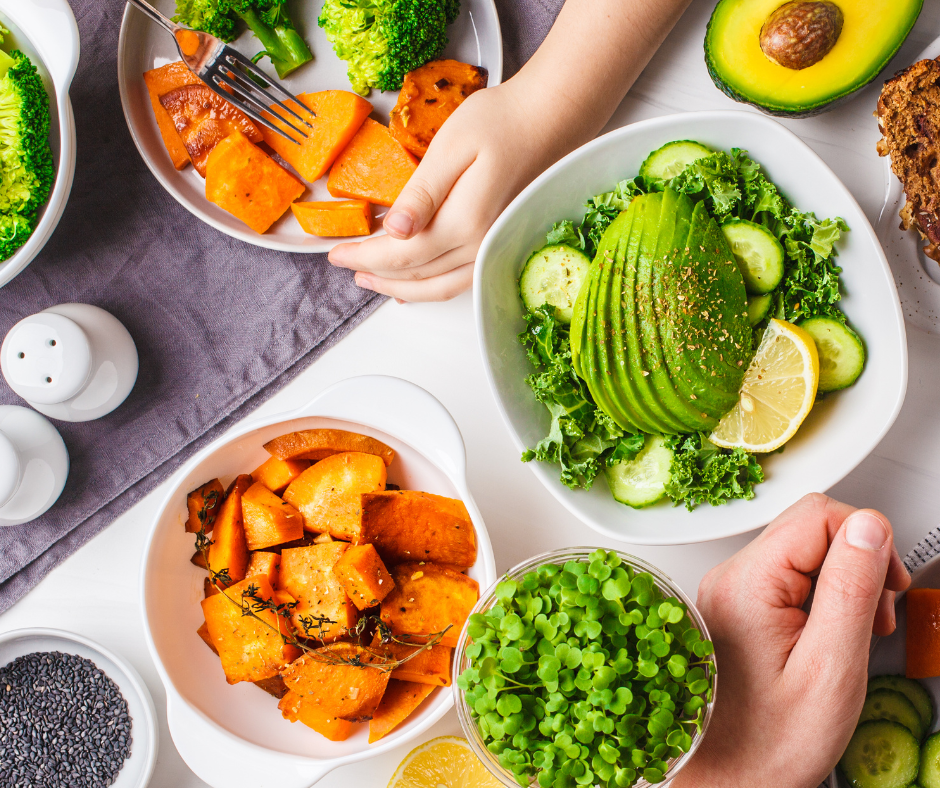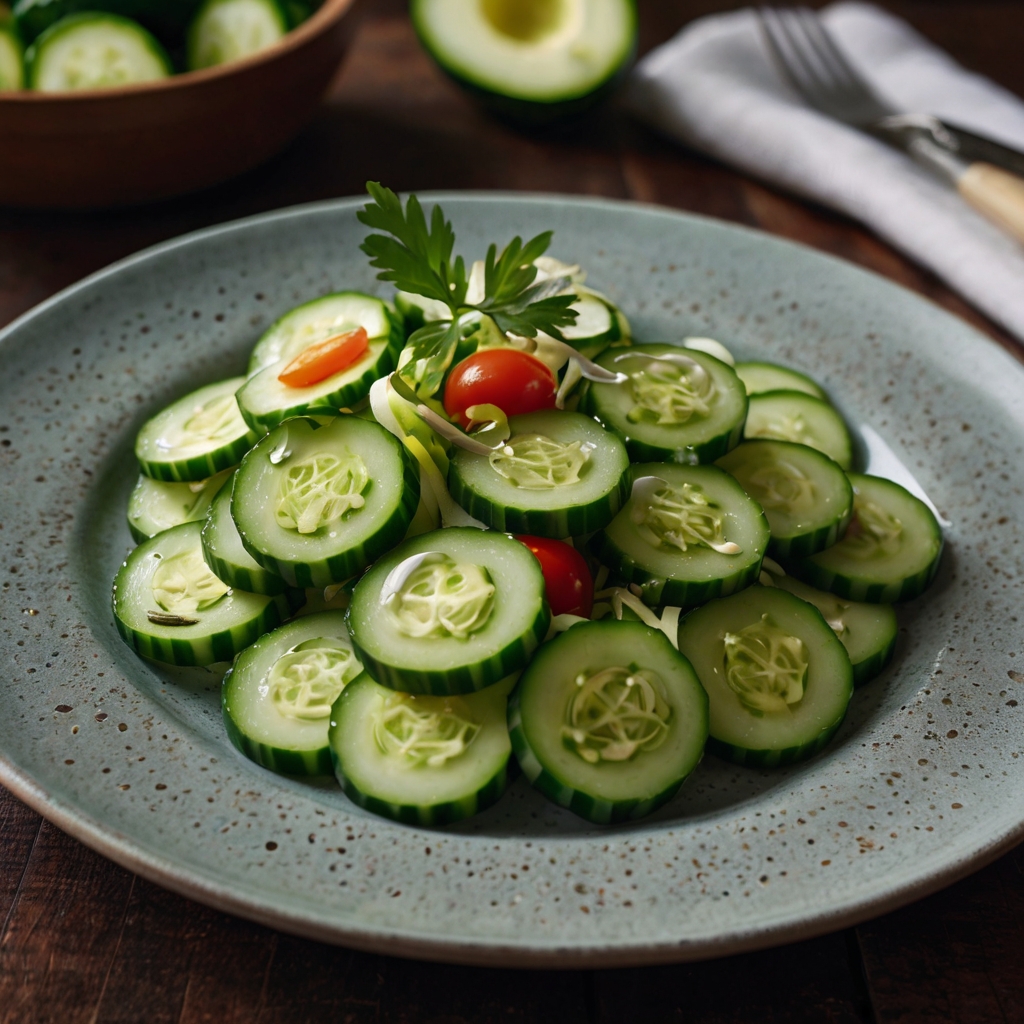Living with PCOS-Diet Friendly Recipes can feel overwhelming, especially when it comes to managing symptoms. The good news? Your diet can be a powerful ally in this journey. By choosing the right foods, you can help balance hormones, reduce inflammation, and improve overall well-being. The key is understanding which ingredients support your body’s needs. In this post, you’ll discover tasty, simple, and PCOS-friendly recipes that fit seamlessly into your lifestyle. Let’s dive into how these dishes can make a difference in your daily life. Discover delicious PCOS-Diet Friendly Recipes that help balance hormones naturally.
Understanding PCOS and Its Dietary Needs
Navigating the complexities of PCOS can be challenging, but understanding its core aspects and how diet plays a crucial role in managing the condition can make a big difference. Let’s dive into what PCOS is and why diet is essential in managing it. Start your day with nutrient-rich PCOS-Diet Friendly Recipes for a healthy metabolism.
What is PCOS?
Polycystic Ovary Syndrome (PCOS) is a hormonal disorder common among women of reproductive age. It affects how a woman’s ovaries work, and it comes with a range of symptoms, including irregular periods, excessive hair growth, acne, and potential fertility issues. In essence, PCOS is like a traffic jam in your body’s hormone production system, causing delays and disruptions in your menstrual cycle and overall reproductive health. Enjoy easy-to-make PCOS-Diet Friendly Recipes that keep cravings in check. According to the Mayo Clinic, these symptoms are often due to an imbalance in the body’s hormones, such as excess androgens (male hormones).
Women with PCOS may also experience obesity, insulin resistance, and an increased risk of developing type 2 diabetes and other metabolic issues. The Cleveland Clinic notes that PCOS is a leading cause of infertility, yet with proper management, many symptoms can be significantly reduced. Find the best PCOS-Diet Friendly Recipes packed with fiber and protein.
Why Diet Matters in PCOS
Diet plays a vital role in managing PCOS by directly influencing hormone levels and insulin sensitivity. Insulin is a hormone that manages blood sugar levels, and many women with PCOS have a condition known as insulin resistance, which can exacerbate symptoms. Think of insulin resistance as a stubborn car that won’t start; it causes the pancreas to produce more insulin, leading to higher androgen levels and worsened symptoms. Learn how PCOS-Diet Friendly Recipes can improve insulin sensitivity.
Eating the right foods can help improve insulin sensitivity and reduce androgen levels. This can be a game-changer in managing symptoms like irregular periods and excess hair growth. For instance, a study published on PubMed highlights how a diet focused on lowering insulin levels can substantially reduce symptoms. Try flavorful PCOS-Diet Friendly Recipes that support weight management.
Key dietary strategies include:
- Low Glycemic Index (GI) Foods: Foods that release sugar slowly help maintain steady insulin levels.
- Balanced Meals: Combining proteins, healthy fats, and carbs can help manage blood sugar spikes.
- Fiber-rich Foods: These can improve digestion and help manage insulin levels.
A healthy diet not only addresses PCOS symptoms but also lowers the risk of related health issues like heart disease and diabetes. Hopkins Medicine emphasizes that lifestyle changes, including dietary adjustments, are crucial in alleviating PCOS symptoms and improving overall quality of life. Explore gluten-free PCOS-Diet Friendly Recipes to reduce inflammation.

Photo by Vanessa Loring
By understanding the role of diet in PCOS, making thoughtful food choices becomes much more than just a meal decision; it’s a step towards holistic health and well-being. Satisfy your sweet tooth with sugar-free PCOS-Diet Friendly Recipes.
Looking to start a healthy and balanced plant-based lifestyle? Check out our Vegan Diet Plan for a complete guide on nutrient-rich meals, protein sources, and delicious recipes to keep you energized
Key Nutrients for a PCOS- Diet Friendly Diet
For those managing PCOS, selecting foods that support a healthy lifestyle is like building a strong foundation for a house. Each nutrient plays a distinct role, creating a stable structure to manage symptoms and improve overall well-being. Let’s explore three crucial nutrients that contribute to a PCOS-friendly diet. Fuel your body with wholesome PCOS-Diet Friendly Recipes for sustained energy.
Role of Omega-3 Fatty Acids
Omega-3 fatty acids are like nature’s balm for inflammation. Known for their anti-inflammatory properties, these healthy fats can help calm the body’s inflammatory response, which is a common issue in PCOS. But that’s not all—omega-3s also play a significant part in improving insulin sensitivity. Say goodbye to processed foods with homemade PCOS-Diet Friendly Recipes.
With PCOS, many women face insulin resistance, a condition where the body doesn’t respond well to insulin, leading to elevated blood sugar levels. Omega-3s help enhance insulin sensitivity, making the body more responsive to insulin, thereby stabilizing blood sugar levels. Discover anti-inflammatory PCOS-Diet Friendly Recipes for better gut health. For an in-depth study on the benefits of omega-3 fatty acids, take a look at this resource.
Importance of Fiber
Fiber is the unsung hero in the battle against PCOS symptoms. It acts like a sponge, soaking up excess insulin and helping stabilize blood sugar levels. This is particularly beneficial because blood sugar swings can amplify PCOS symptoms, leading to more severe hormonal imbalances. Meal prep made easy with simple PCOS-Diet Friendly Recipes.
Moreover, fiber aids in weight management—a crucial aspect of PCOS management. By promoting a feeling of fullness, fiber helps reduce overall calorie intake, assisting in weight loss or maintenance goals. Include more high-fiber foods in your meals to naturally support your health. Enjoy dairy-free PCOS-Diet Friendly Recipes for hormonal balance. Find more on the benefits of fiber with this informative guide.
Benefits of Antioxidants
Antioxidants are the knights in shining armor against oxidative stress, a common issue in PCOS. Oxidative stress leads to cell damage and exacerbates inflammation and insulin resistance. Antioxidants help neutralize free radicals, reducing oxidative stress and protecting your cells from damage. Reduce bloating with gut-friendly PCOS-Diet Friendly Recipes.
Incorporating antioxidant-rich foods like berries, leafy greens, and nuts into your diet can help manage PCOS symptoms effectively. These foods not only reduce oxidative stress but can also enhance overall health and vitality. Cook delicious and quick PCOS-Diet Friendly Recipes for busy days. To discover more about how antioxidants help in PCOS, refer to this comprehensive study.

Photo by Phenyo Deluxe
Incorporating these nutrients into your diet is a step towards embracing a healthier lifestyle while managing PCOS. By choosing foods rich in omega-3s, fiber, and antioxidants, you’re not just eating to survive; you’re eating to thrive. Get creative with plant-based PCOS-Diet Friendly Recipes for better digestion.
PCOS-Diet Friendly Recipes
Incorporating a balanced diet is crucial for managing PCOS symptoms effectively. Crafting meals that are both nutritious and delicious is key to a sustainable diet plan. Let’s explore some meal ideas that are friendly to PCOS dietary needs, helping you feel your best every day. Learn how PCOS-Diet Friendly Recipes can help manage stress naturally.
Breakfast: Avocado and Poached Egg Toast
Start your day with a nutrient-rich Avocado and Poached Egg Toast. This simple recipe is not only delicious but also packed with benefits for managing PCOS. Support your fertility with nutrient-dense PCOS-Diet Friendly Recipes.
Ingredients:
- 1 ripe avocado
- 2 eggs
- 2 slices of whole-grain bread
- Salt and pepper to taste
- A dash of lemon juice
Instructions:
- Toast the whole-grain bread slices until golden brown.
- Mash the avocado in a bowl; add salt, pepper, and lemon juice for flavor.
- Spread the avocado mixture evenly on the toasted bread.
- Poach the eggs gently and place each one on top of the avocado toast.
Avocados are rich in healthy fats, which can help control blood sugar levels, a crucial factor in managing PCOS symptoms. Eggs supply high-quality protein and good cholesterol, making this breakfast a fantastic way to kickstart your metabolism.
Lunch: Quinoa and Chickpea Salad
This Quinoa and Chickpea Salad is both tasty and loaded with nutrients that support women with PCOS.
Ingredients:
- 1 cup of cooked quinoa
- 1 can of chickpeas, rinsed and drained
- 1 cucumber, diced
- 1 red bell pepper, chopped
- A handful of fresh parsley, chopped
- Juice of 1 lemon
- 2 tablespoons of olive oil
- Salt and pepper to taste
Instructions:
- In a large bowl, combine quinoa, chickpeas, cucumber, bell pepper, and parsley.
- In a separate small bowl, whisk together lemon juice, olive oil, salt, and pepper.
- Pour the dressing over the quinoa salad and mix well.
Quinoa is a complete protein that supplies all nine essential amino acids vital for health, particularly beneficial for women with PCOS. Chickpeas offer a healthy dose of fiber, helping to maintain stable blood sugar levels. Discover more about its benefits here.

Photo by JÉSHOOTS
Dinner: Grilled Salmon with Steamed Vegetables
Dinner doesn’t have to be complicated to be effective. Grilled Salmon with Steamed Vegetables offers a wholesome meal that’s brimming with omega-3 fatty acids.
Ingredients:
- 2 salmon fillets
- 1 tablespoon olive oil
- Salt, pepper, and herbs of choice (like dill or thyme)
- A mix of your favorite vegetables for steaming (e.g., broccoli, carrots, bell peppers)
Instructions:
- Preheat the grill to medium-high heat.
- Rub the salmon fillets with olive oil, salt, pepper, and herbs.
- Grill for about 4-5 minutes on each side until cooked through.
- Meanwhile, steam the vegetables until tender.
Salmon is an excellent source of omega-3 fatty acids, which can help reduce inflammation, a common challenge in managing PCOS. Pairing it with a medley of steamed vegetables ensures you’re receiving an abundance of vitamins and minerals. Learn more about PCOS-friendly foods.
Snack: Greek Yogurt with Berries
As a perfect snack option, Greek Yogurt with Berries offers a burst of flavor and numerous health benefits for those living with PCOS.
Ingredients:
- 1 cup plain Greek yogurt
- ½ cup mixed fresh berries (such as blueberries, raspberries, or strawberries)
- A drizzle of honey or a sprinkle of nuts (optional)
Instructions:
- Spoon the Greek yogurt into a bowl.
- Top with the mixed berries.
- Add a drizzle of honey or nuts if desired.
Greek yogurt is rich in protein and probiotics, which can help maintain a healthy gut and support insulin sensitivity. Berries bring antioxidants into the mix, aiding in the reduction of oxidative stress. For a deeper understanding of Greek yogurt’s benefits, visit this link.
By incorporating these recipes into your regular meal plan, you can embrace a tasty and balanced diet that aligns with your PCOS management goals.
Tips for Meal Planning and Preparation
Organizing meals is like setting a roadmap for the week. With PCOS, meal planning can be a key strategy in managing symptoms, maintaining energy levels, and ensuring nutritional balance. Meal preparation doesn’t have to be daunting; with the right approach, it becomes a simple and effective tool in your wellness journey.
Creating a Weekly Meal Plan
Creating a meal plan tailored to your needs helps ensure you’re getting the nutrients necessary to manage PCOS symptoms. Here’s how you can craft a balanced weekly meal plan:
- Set Clear Goals: Decide what you want to achieve with your diet. Is it better insulin sensitivity, more energy, or weight management? Having a focus will guide your meal choices.
- Balance Your Plate: Aim for meals that are half non-starchy vegetables, a quarter lean protein, and a quarter whole grains or starchy vegetables. This balance helps manage blood sugar levels. Learn more about balancing your plate in this PCOS-Friendly Meal guide.
- Include Varied Nutrients: Incorporate foods rich in omega-3s, fiber, and antioxidants to combat inflammation and regulate hormones. Omega-3 sources such as fish, nuts, and seeds can enhance meal diversity.
- Prepare In Advance: Dedicate a day to meal prep. Having meals ready reduces stress and temptation to make less healthy choices. Cook grains, chop veggies, and marinate proteins for quick meal assembly.
Engaging with meal planning makes it easier to stick to a PCOS-friendly diet, leading to sustainable health improvements. For a deeper dive, check out this weekly meal plan for PCOS.
 Photo by Vegan Liftz
Photo by Vegan Liftz
Grocery Shopping Tips
Shopping effectively is crucial for maintaining a PCOS-friendly diet. Here are some strategies to help you make the best choices:
- Create a List: Always have a shopping list focused on whole, unprocessed foods. A structured list saves time and keeps unnecessary items out of your cart.
- Read Labels: Understanding food labels is critical. Look for items with low added sugars and high fiber content. For canned goods, avoid those with added syrups or preservatives. For more on label reading, visit PCOS Grocery Shopping Tips.
- Prioritize Produce: Fresh fruits and vegetables should form the bulk of your cart. They provide fiber, vitamins, and minerals essential for managing PCOS.
- Select Smart Proteins: Choose lean proteins such as chicken, fish, tofu, and legumes. These are great for keeping you full and supporting muscle health.
By following these tips, grocery shopping becomes a more focused and productive experience, setting you up for a week of successful meal preparations. Check out a comprehensive PCOS grocery list for more insights.
Lifestyle Changes to Complement a PCOS Diet
Managing PCOS effectively goes beyond just diet. Lifestyle choices such as exercise, stress management, and sleep are equally vital in supporting a healthy lifestyle. These elements work in harmony with dietary choices to enhance overall well-being and manage symptoms more effectively.
The Role of Exercise
Regular physical activity is a cornerstone in managing PCOS alongside a balanced diet. Exercise reduces insulin resistance, a critical element in PCOS management. Women with PCOS often suffer from insulin resistance, where the body doesn’t respond well to insulin, leading to excess insulin levels and subsequently higher androgen levels. Exercise works like a natural regulator, helping your body respond better to insulin.
Not only that, engaging in physical activity can boost your mood and energy levels due to the release of endorphins. Consider including a variety of activities such as aerobic exercises, strength training, and flexibility exercises like yoga. A study published by BMC Public Health emphasizes that physical activity also improves reproductive functions and overall quality of life in women with PCOS.

Photo by Mikhail Nilov
Managing Stress
Stress management is more crucial than ever in a PCOS management plan. Stress can elevate cortisol levels, which may worsen PCOS symptoms by affecting hormone balance. Incorporating stress-relief techniques like meditation, yoga, or mindfulness can make a significant difference.
Meditation and yoga work as calming agents, helping the mind center itself and reducing stress-induced hormone imbalances. Even a few minutes of meditation daily can provide a respite from anxiety and help in maintaining a balanced hormonal environment. Learn more about these techniques through this helpful article on Mindfulness and Stress Reduction.
Importance of Sleep
Sleep might just be the unsung hero in managing PCOS. Quality sleep ensures that your body repairs and restores itself, balancing hormones that control hunger, energy, and stress. Unfortunately, women with PCOS often experience sleep disturbances that can exacerbate symptoms, making restful nights critical.
A lack of sleep can disrupt the body’s harmony, leading to increased stress levels and insulin resistance. To aid in better sleep, establish a calming nightly routine, keep a consistent sleep schedule, and create a restful environment. Check out this guide on the role of sleep in PCOS for further insights.
By weaving exercise, stress management, and sleep into your routine, you create a balanced ecosystem that complements your dietary efforts in managing PCOS.
Conclusion
Embarking on a PCOS-friendly diet doesn’t have to be daunting. It’s about making thoughtful choices that promote balance and well-being. You’ve got the power to positively influence your hormones and health with each meal.
Start by integrating the shared recipes and tips into your routine. These small changes can pave the way for significant improvements in managing symptoms. Remember, you’re not alone on this journey—every step you take is a stride towards a healthier you.
Why not take that first step today? Try one of the recipes and feel the difference it can make. What will your next meal look like?


